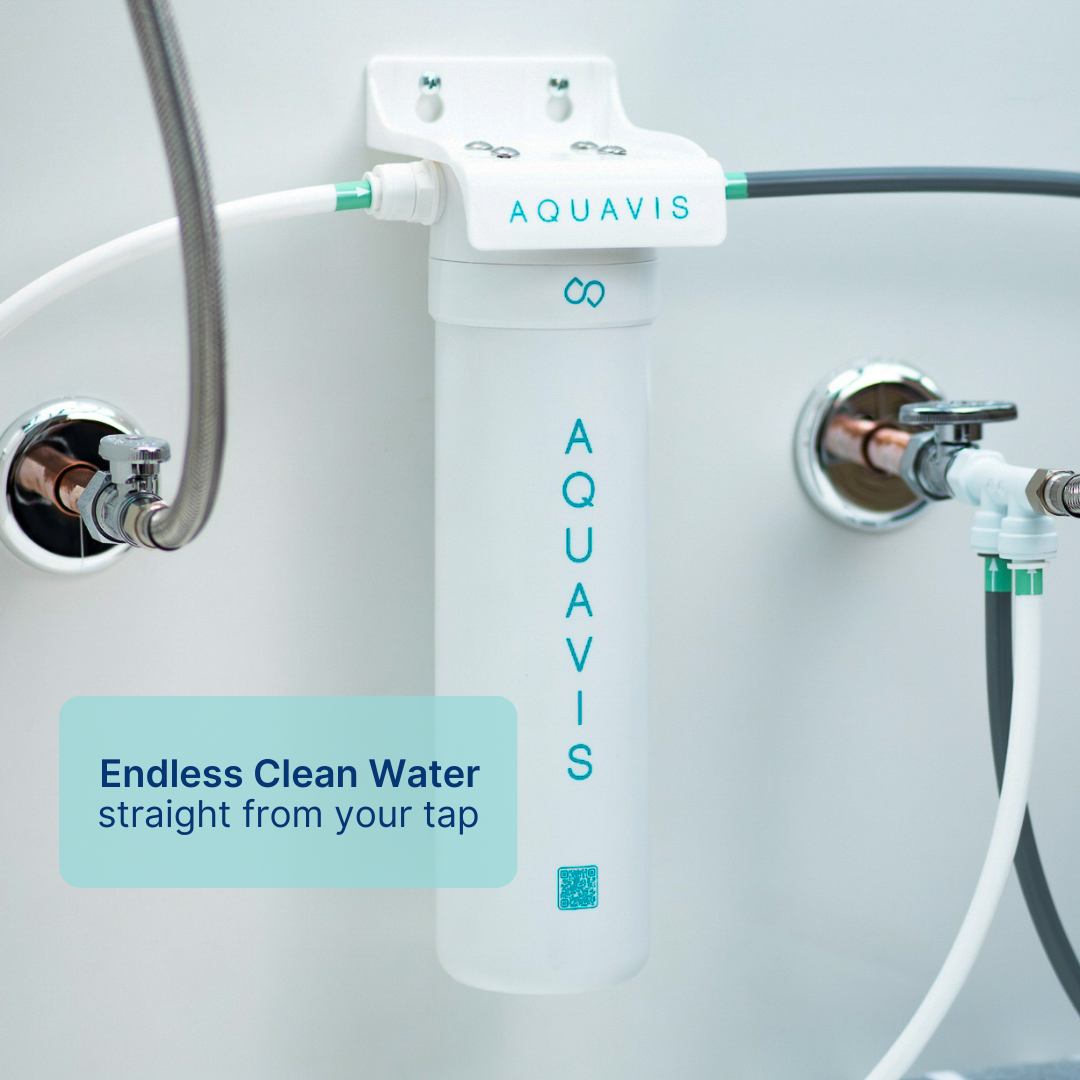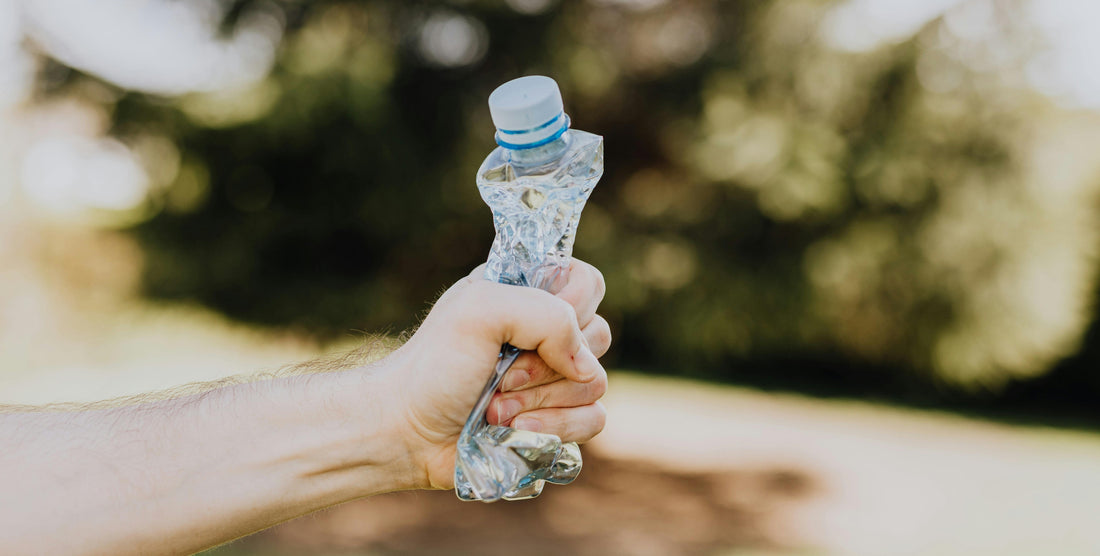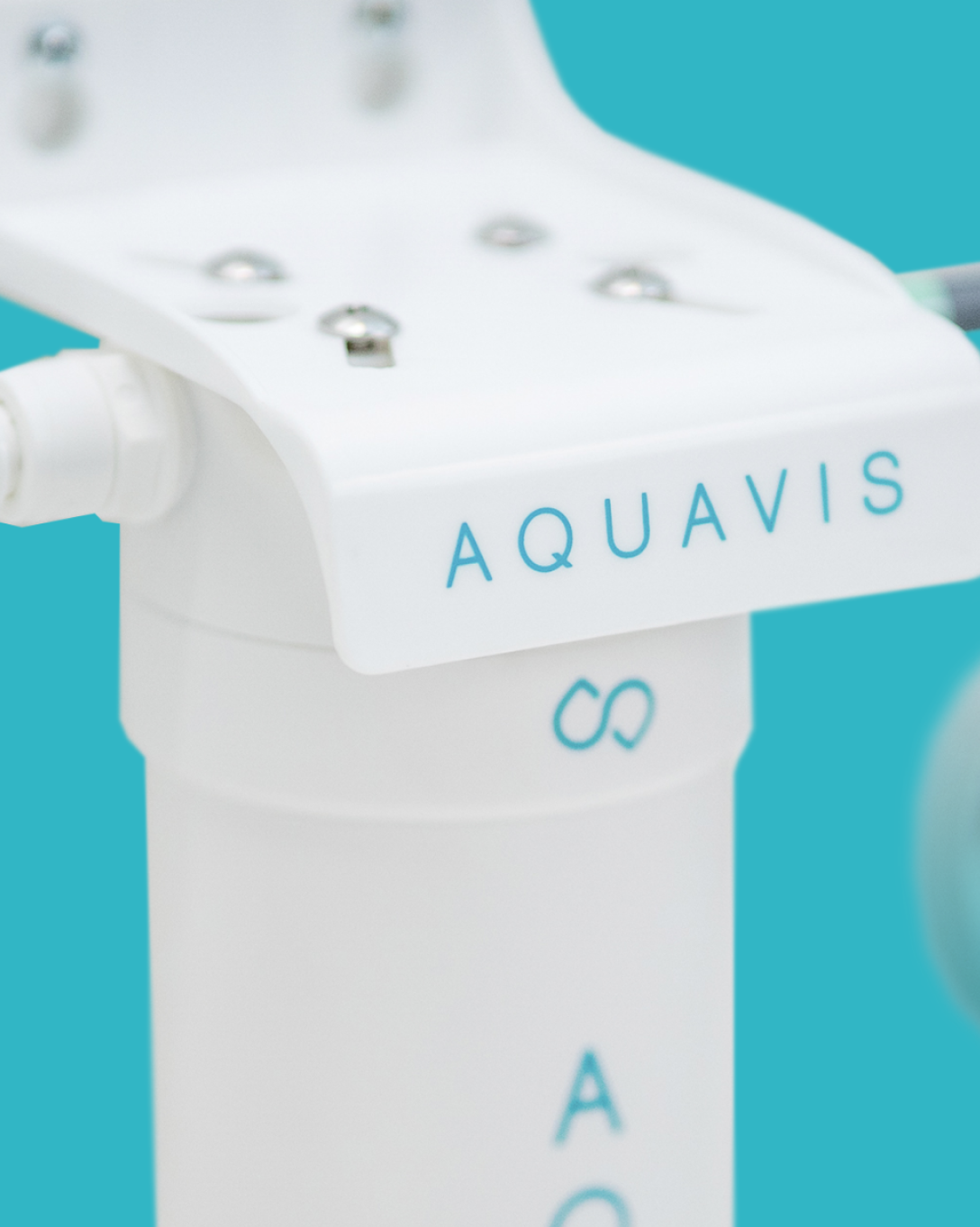Bottled water is everywhere. From supermarket shelves to corporate offices, Americans consume about 15.9 billion gallons of bottled water every year. This high consumption level is likely because bottled water is often perceived as a healthier and cleaner alternative to tap water.
However, the bottled water industry has become more scrutinized with increasing concerns about sustainability and environmental conservation. So let's talk about the truth of bottled water: how does it impact the environment, is it actually healthy, and are there better alternatives?
Understanding the truth about plastic water bottles helps you make more informed decisions regarding your family's health and environmental values.
Environmental Impact of Plastic Bottles
The environmental footprint of the bottled water industry is much larger than you might expect. Globally, the production of plastic bottles creates millions of tons of plastic waste each year, much of which is not recycled. Statistics indicate that less than 9% of plastic bottles are recycled globally, leading to significant waste and environmental degradation.
These plastic bottles often find their way into natural habitats, polluting landscapes and waterways. In oceans, plastic bottles break down into microplastics and may be consumed by marine life, entering the food chain and potentially impacting human health as well.
Nowadays, it's virtually impossible to travel anywhere without seeing once pristine environments now cluttered with plastic waste, providing a stark visual reminder of the need to shift towards more sustainable practices. The decomposition process for this plastic can take up to 500 years, during which they continuously leach harmful chemicals into the environment, posing physical threats to wildlife.
Single-Use Plastic Bottles Versus Reusable Water Bottles
The debate about single-use plastic bottles and reusable water bottles centers on their respective environmental impacts. Single-use plastic bottles, while convenient, generate an enormous amount of waste. Each year, billions of these bottles are thrown away, with only a small fraction being recycled. Additionally, the production process for these bottles involves large amounts of water and fossil fuels.
In contrast, reusable water bottles like the Luma Water Bottle from Aquavis offer a sustainable alternative. Made from durable materials such as stainless steel, glass, or BPA-free plastic, reusable bottles can significantly reduce waste and resource use over their lifetime.
They also decrease the energy and materials expended on the continual production and transportation of single-use bottles. By switching to reusable bottles, individuals can substantially reduce their environmental footprint, lessen the burden on waste management systems, and help reduce the demand for new plastic production.
Contaminants in Bottled Water
Bottled water is often considered a healthier alternative to tap water, yet various studies and reports have raised concerns about contamination with heavy metals and other pollutants. Factors such as the source of the water, the conditions under which it is bottled, and the composition of the plastic containers can all influence the presence of contaminants like lead, arsenic, and microplastics.
These pollutants are known to pose significant health risks, including neurological damage, chronic diseases, and developmental problems in children. The presence of these contaminants challenges the perception of bottled water as a safer option and highlights the need for stringent testing and regulation of bottled water products to protect public health.
Quality of Municipal Versus Bottled Water
When comparing municipal tap water quality with bottled water, several factors come into play. In many regions, especially in developed countries, municipal tap water is subject to rigorous testing and must adhere to strict quality standards set by governmental health agencies. These regulations ensure that tap water is safe for consumption and often surpasses bottled water quality.
Conversely, bottled water is not always held to the same exacting standards, and quality can vary widely depending on the source and the bottling process. While some bottled waters are drawn from pristine springs, others may come from sources that are not much different from municipal systems.
Moreover, the plastic packaging of bottled water can introduce its own health risks, as chemicals from the plastic can leach into the water, especially when bottles are exposed to heat or stored for extended periods. Recently, scientists discovered the presence of microplastic in water as well, with over 240,000 micro and nanoplastics per liter.
Bottled Water Alternatives
As awareness of bottled water consumption's environmental and health implications grows, consumers are increasingly looking for alternatives that can mitigate these impacts. Municipal water systems in many areas offer safe, clean, and sustainable drinking water, but even tap water can contain contaminants. However, home filtration options like those from Aquavis can provide you with safe, clean water in your home.
By shifting away from bottled water and towards filtered tap water, individuals can reduce their environmental impact, minimize health risks, and contribute to a more sustainable future.
Now that you understand the full spectrum of issues associated with bottled water—from the environmental effects to health risks posed by contaminants—you are better equipped to make better choices for your family's health and the planet's well-being.
The truth about bottled water is that, while convenient, it negatively impacts the environment and our personal health, making it an overall worse hydration option than tap water.
Choose Aquavis
At Aquavis, we value your family's health and the planet's well-being. That's why we created the Aquavis Pulse, an advanced activated-carbon filter that utilizes adsorption to remove contaminants from tap water. This under-sink filter installs in minutes with no professional help needed.
Unlike other systems, the Aquavis Pulse can filter up to 500 gallons of water from contaminants like PFAS, heavy metals, VOCs, cysts, and chlorine before a filter replacement is needed. If you are looking for a healthier, more environmentally friendly way to hydrate, Aquavis can help! Choose Aquavis to provide your family with cleaner, healthier, and tastier water today.


